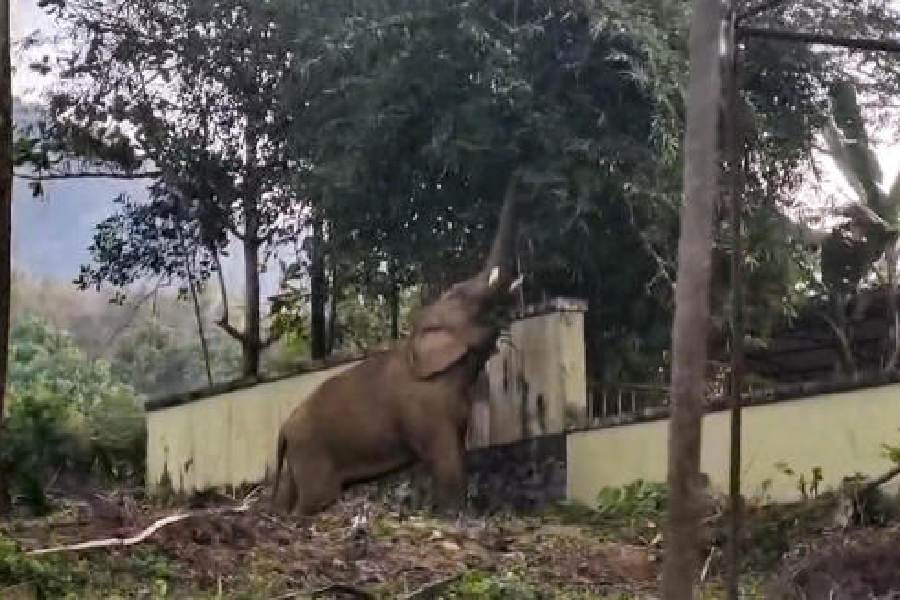The ongoing human-animal conflict in Kerala continues to escalate with no sign of improvement, prompting the Opposition to launch a political campaign against the state government for its perceived indifference towards the problem.
In the event of casualties, the Left government has provided the affected families an ex-gratia of ₹10 lakh. However, experts believe that the government has not implemented long-term measures to prevent wild animals from encroaching on human settlements.
Kerala has been grappling with frequent human-animal conflicts, primarily involving elephants, tigers, leopards, bison, wild boars and snakes. These incidents often lead to protests, where locals block roads, demanding safety and compensation for the victims’ families.
Despite these recurring incidents, little has been done to resolve the issue permanently. Agricultural land is being destroyed and farmers in border areas are losing their livelihood.
A recent report presented by Kerala forest minister A.K. Saseendran in the Assembly revealed that 909 people have lost their lives in the last eight years because of such conflicts, highlighting the severity of the problem.
One of the latest casualties was 23-year-old Amar Ilahi, who was killed by a wild elephant in the Kothamangalam forests in Idukki district. The incident occurred when Ilahi and his friend, Manzoor, were attempting to untie their cattle. The elephant attacked, killing Ilahi while Manzoor narrowly escaped and is receiving treatment in a private hospital in Thodupuzha. In response, all three political parties staged a daylong protest in Vannappuram, where Amar lived.
On Tuesday, the Opposition United Democratic Front (UDF) declared its intention to escalate its campaign on the issue. Congress leader V.D. Satheesan slammed the state government for failing to take meaningful action despite repeated calls for intervention. He said the government had been apathetic towards measures such as solar-powered electric fences and trenches, citing a lack of funds.
“Despite the Opposition relentlessly raising this issue, the government has shown scant regard to installing solar hanging fences or trenches on the ruse of lack of funds. The UDF has decided to up our ante against this laxity,” said Satheesan.
Dr E.K. Easwaran, a wildlife expert with 35 years of experience and former chief forest veterinary officer, emphasised the need for targeted, site-specific studies to address the unique challenges of each area. According to Easwaran, wild animals exhibit different behaviours depending on the region and this must be taken into account while formulating solutions.
“With the spurt in tourism in Kerala, elephants are getting attracted to the smell of food having salt content. Climate change has also affected the food chain of wild animals.
“A health approach reliant on inter-disciplinary studies has to be initiated in association with ecologists, the forestry division, agriculture experts and animal husbandry officials. The effort has to be led by the Kerala forest department. The formation of the Vana Meghala Jagratha Samithi (forest region monitoring committee) in 2012 has not borne excellent results. This has to be revamped under the aegis of the local self-government bodies,” Easwaran said.











